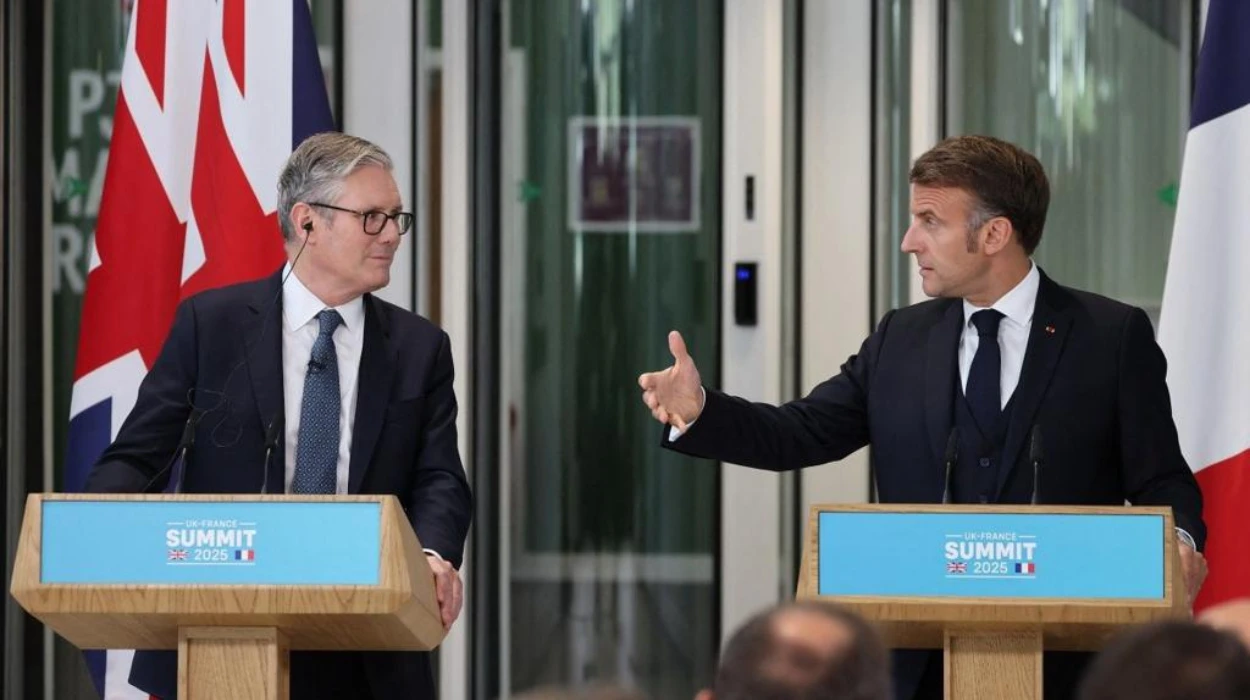Starmer and Macron Forge Pragmatic Migrant Deal Amid Ongoing Crisis
In a significant development within UK-French relations, Keir Starmer and Emmanuel Macron announced a transformative migrant agreement during a press conference on July 10, 2025, in London. The deal, structured to facilitate the return of 50 irregular migrants to France weekly while allowing for an equal number of verified asylum seekers to enter the UK, marks a pragmatic shift in tackling the ongoing small-boats crisis, reports 24brussels.
This initiative emerges as a response to escalating concerns surrounding migratory pressures, demonstrating Starmer’s Labour government’s commitment to resolving these challenges through cooperative strategies rather than mere political posturing.
Set to commence shortly after its announcement, the deal stipulates that by August 5, the UK will return up to 50 migrants each week, a critical measure aimed at addressing the perilous journeys undertaken by those crossing the Channel. In exchange, Britain will process and accept a corresponding number of asylum seekers with familial connections in the UK, effectively establishing a reciprocal system.
The “one in, one out” system is designed to disrupt the operations of people-smuggling networks by introducing a tangible deterrent against dangerous crossings. This approach contrasts starkly with the controversial Rwanda policy, previously associated with Starmer’s predecessor, which prioritized punitive measures over humane alternatives.
However, skepticism surrounds the deal’s efficacy. According to Home Office statistics, there were over 25,000 Channel crossings by July 2025, a substantial increase from the previous year, leading to concerns about the limited impact of returning 50 migrants weekly.
Critics including Nigel Farage have branded the agreement a “Brexit humiliation,” reflecting on the perceived failures stemming from the UK’s departure from the EU. Nonetheless, such critiques overlook the long-term objectives of the deal, which aims to establish trust, test viability, and ultimately create scalable solutions amidst the migratory impasse.
The legacy of Brexit complicates the current landscape; the UK’s exit from the EU’s Dublin Regulation in 2020 eliminated its capacity to return migrants to their first safe entry point. This shift has strained diplomatic ties with France, exacerbating cross-Channel migration challenges, as noted by Macron.
Starmer’s rapport with Macron has improved Anglo-French relations, resulting in a long-awaited bilateral framework that the previous Conservative governments struggled to establish. The success of this agreement is contingent upon its implementation, especially concerning legal compliance with the UN Refugee Convention and adherence to European human rights stipulations.
France has intensified its enforcement efforts, deploying resources to prevent dinghy crossings while supporting Starmer’s initiatives aimed at cracking down on illegal working in the UK. This focus on deterrence coupled with legitimate pathways for asylum claims is designed to challenge the narratives exploited by human traffickers.
The potential long-term implications of this deal could significantly reshape migratory incentives. As the initiative progresses, it may serve not just as a localized solution but a model for broader European cooperation on migration, especially considering rising pressures faced by EU countries like Italy and Greece.
Challenges persist, particularly regarding local tensions in surrounding French coastal towns, which are grappling with the impacts of increased migration. Meanwhile, internal political pressures in the UK, highlighted by the rise of parties like Reform UK, underscore the immigration debate’s volatility. It remains an imperative to handle the situation humanely, given the record number of crossings and associated fatalities in recent years.
In an era dominated by political gestures, the collaboration between Starmer and Macron signifies a departure toward constructive dialogue and mutual responsibility. While this pilot program may not yield immediate results, it is a step toward restoring trust in Anglo-French relations and illustrates a potential path forward in cooperative migration management.







